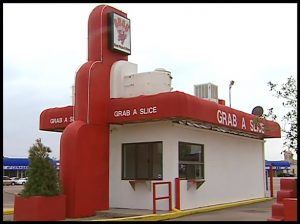(Chuck Muth) – If you believe the headlines, you might jump to the conclusion that Lyon County’s legal brothels are Ground Zero for an international sex trafficking ring…
- “Trafficking signs seen in brothels”
- “Audit of Hof’s 4 legal sites finds lack of enforcement”
- “A third of prostitutes registered in 2017 had red flags of possible human trafficking”
- “Audit finds signs of human trafficking at brothels in Nevada county”
- “Lyon County finds possible signs of trafficking at brothels”
- “Lyon Co. Sheriff’s Audit Found Issues in Vetting of Legal Prostitutes”
- “Lyon County increasing enforcement at brothels”
And you’d be wrong.
Not your fault. Misleading, hysteria-inducing click-bait headlines are how they sell papers. It’s one of the reasons why the term “fake news” has become so popular. So let’s look deeper into the story and beyond the headlines…
First notice the use of “weasel words” so often deployed by politicians. (For example: “I don’t *INTEND* to raise taxes”)
Weasel words allow news publications to defend their misleading stories and headlines as technically accurate. There were “signs” of trafficking. There were “red flags.” Trafficking might be “possible.”
The truth is, NO SEX TRAFFICKING in any of Lyon County’s four legal brothels was discovered during the reported audit. Not one arrest. Not one citation. Not one fine.
In addition, this wasn’t an “Audit of Hof’s 4 legal sites.”
This was an audit of the processes and procedures at the Lyon County Sheriff’s Office (LCSO) – NOT the brothels – to make sure the LCSO itself was doing adequate screening of brothel applicants before issuing them a work card.
And that’s a critical point overlooked in the headlines: The brothels don’t issue work cards! The sheriff’s office does.
No one is allowed to work in one of Lyon County’s legal brothels unless and until the sheriff’s office, not the brothels, clear them after conducting FBI and other background checks.
Indeed, as Sheriff Al McNeil noted at the town hall forum on Lyon County Question 1 last week, the sheriff’s office has been issuing work cards for brothel workers since 1990 and…
“The sheriff’s office has not done a good job in vetting the applicants coming through the brothel system. We own it. … The problem lies in the vetting that we should have been doing for the past 28 years that we haven’t been doing. … When we looked at this internal audit we saw the problems that were associated; that we weren’t doing a good job.”
Again, this entire four-month investigation was of the SHERIFF’S OFFICE, not the brothels. The spot-check of “Hof’s 4 legal sites” – as accurately reported only by the Nevada Independent – was solely an “educational visit” with federal ICE agents in an effort to help LCSO tighten up its screening procedures.
The results of the internal audit were recently submitted to the Lyon County Commission. And that report, too, has been largely misrepresented by news outlets and cherry-picked by opponents. So let’s take a look at some key points…
1.) Under “Findings,” the LCSO noted that “a recent brothel statement” indicated that “134 non-sex worker support staff” worked in the brothels but LCSO “can only document 79.”
Sounds like violations, right? Wrong.
The fact is there are a number of employees – including IT personnel, marketers and restaurant workers at the NV 50 grill – who are not tied directly to the brothels and aren’t required to obtain brothel work cards.
Funny how that little fact, which was included in the sheriff’s report, somehow never made it into news stories. Nor – again printed right in the “Findings” for anyone to see – this statement: “There are no significant public safety concerns with these employees as it relates to criminal cases.”
Go figure.
2.) In the review of work cards for sex workers themselves, the LCSO report found…
- 22 applicants who “self-disclosed being foreign-born and/or non-citizens”
- 13 who “made self-disclosure of active criminal cases”
- 19 who “self-disclosed prior prostitution convictions”
- 4 who “self-disclosed active prostitution arrest without case closure”
- 1 who “self-disclosed immigration deportation proceedings”
Do you see the common thread here? “Self-disclosed.”
No one was caught trying to “hide something” on their application. And none of the self-disclosures were cause to deny the applicants a work card – which, again, was issued by LCSO, not the brothels.
In addition, none of this information was provided to the brothels. It’s all on the LCSO work card applications.
And yet, all of these self-disclosures were listed in the report as “Human Trafficking Indicators.”
“Indicators.” Like how the sniffles might be an “indicator” that you’re about to get the flu. Or not.
“Indicators” don’t mean the applicant is or was involved in human trafficking. Just that maybe a little deeper investigation into the applicant’s background by LCSO is called for.
Again, these were only “indicators” of POSSIBLE human sex trafficking; no actual human sex trafficking was found.
3.) As for including self-disclosed prior and open prostitution arrests, the LCSO report states these are “indicators” that the individuals “could still be controlled by a pimp.”
“Could.” Not “are.”
Here’s another possibility…
Maybe these sex workers – who have been working in the ILLEGAL sex market and were arrested for it – decided it was better for them to work in LEGAL brothels than on the street.
In fact, we’ve heard stories where JUDGES have actually ADVISED individuals caught engaging in the illegal market to go work in the legal brothels instead.
And what about sex workers working in the illegal market who are being physically or mentally abused by their illegal pimp? Wouldn’t it be understandable if they decided to escape such unsafe and abusive working conditions and instead move into a legal brothel?
Sure, previous experience as an illegal sex worker might be an indicator of human sex trafficking. But it could also be an indicator of someone logically and understandably deciding that working in a legal brothel is safer and less risky.
You simply cannot jump to the conclusion that all sex workers with a previous history in sex work are being “trafficked.”
So what have we learned, class?
First, never take newspaper headlines at face value.
Secondly, the actual screening “problem” has not been by the brothels.
Thirdly, maybe there are some possible examples of actual sex trafficking going on…or maybe not.
The good news and positive development in all of this is that Sheriff McNeil and the LCSO are now working in PARTNERSHIP with Lyon County’s legal brothels and legal sex workers to find solutions rather than working as adversaries.
The legal brothels don’t want sex trafficking any more than anyone else. They get thousands of applications from individuals who want to work legally every year. Willingly. Knowingly. Without coercion.
Together, the LCSO and the brothels are now working to update and refine the screening procedures for sex worker applicants that will better protect both the community and the workers themselves. This is a good thing.
The current system of legal brothels in Lyon County – which has been in place for almost 50 years – isn’t broken. It just needs a little modernization. You don’t throw the baby out with the bathwater.
Prostitution will continue to exist in Lyon County with or without the licensed, regulated and taxed legal brothels. The legal system – while not perfect – is far better.





